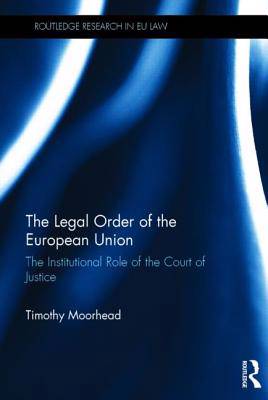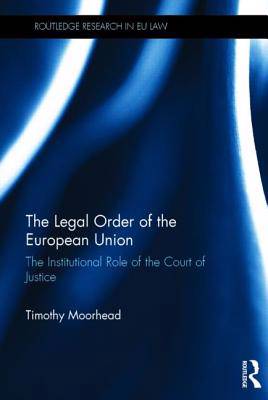
- Retrait gratuit dans votre magasin Club
- 7.000.000 titres dans notre catalogue
- Payer en toute sécurité
- Toujours un magasin près de chez vous
- Retrait gratuit dans votre magasin Club
- 7.000.0000 titres dans notre catalogue
- Payer en toute sécurité
- Toujours un magasin près de chez vous
The Legal Order of the European Union
The Institutional Role of the Court of Justice
Timothy MoorheadDescription
The objective of European integration serves as an ideal of the legal order of the European Union and invites reconsideration of law's conceptual features. This book critically assesses the legal order of the European Union, focusing on the operative aspects of the Union constitution with particular reference to the institutional practices of the Court of Justice in expressing the values underlying this constitution.
Drawing together positivist and non-positivist accounts within an institutional understanding of law, Timothy Moorhead breaks new ground in applying a range of analytic jurisprudential perspectives to the Union legal order, and in employing the theoretical resources provided by the Union to model a revised conceptual viewpoint concerning legal order generally. In offering this conceptual approach, Moorhead emphasises the flexibility inherent in law's institutional character as the basis for a theoretical rationalisation of the Union legal order.
This book will be of great use and interest to scholars and students of European Union Law, Jurisprudence and European Constitutionalism.
Spécifications
Parties prenantes
- Auteur(s) :
- Editeur:
Contenu
- Nombre de pages :
- 170
- Langue:
- Anglais
- Collection :
Caractéristiques
- EAN:
- 9780415529709
- Date de parution :
- 22-05-14
- Format:
- Livre relié
- Format numérique:
- Genaaid
- Dimensions :
- 150 mm x 236 mm
- Poids :
- 376 g

Les avis
Nous publions uniquement les avis qui respectent les conditions requises. Consultez nos conditions pour les avis.






